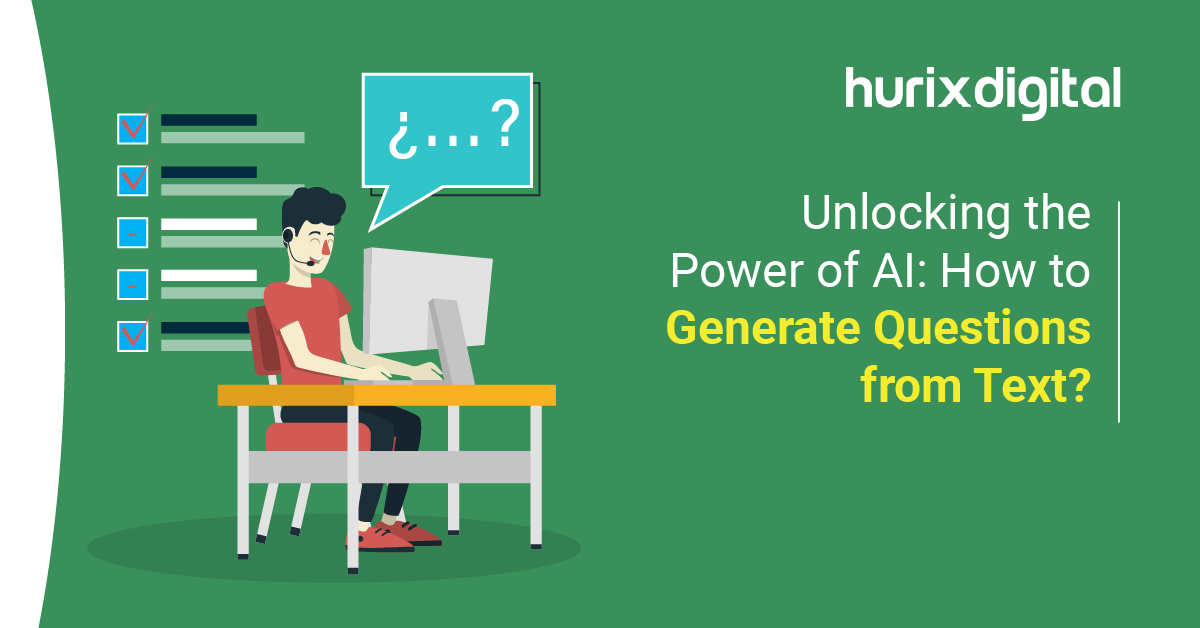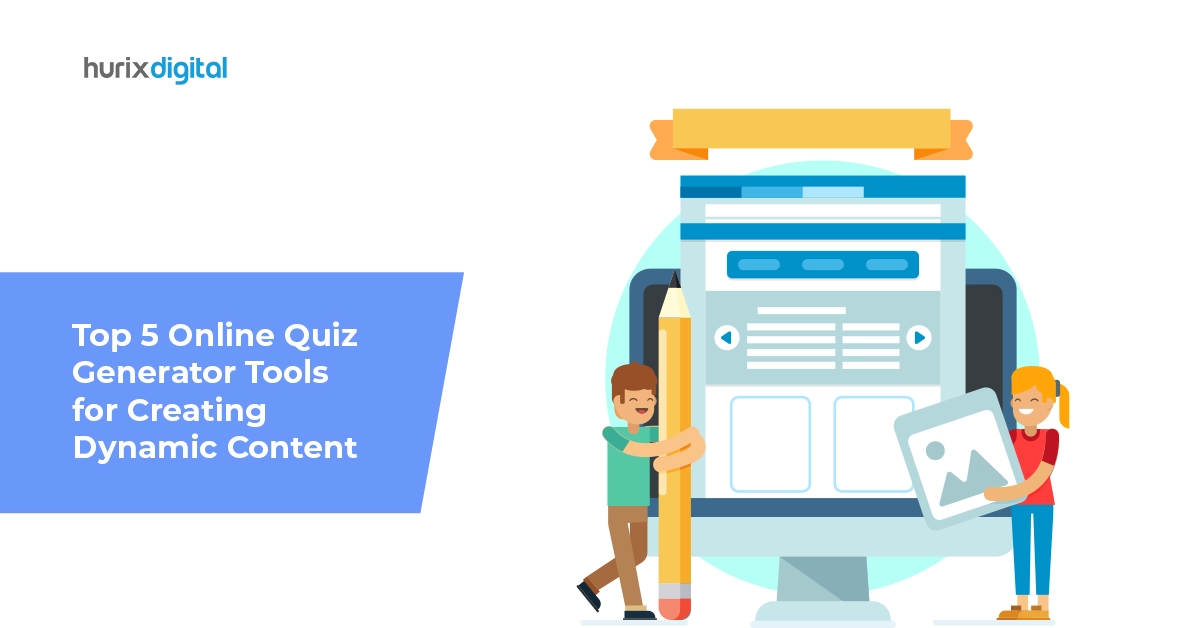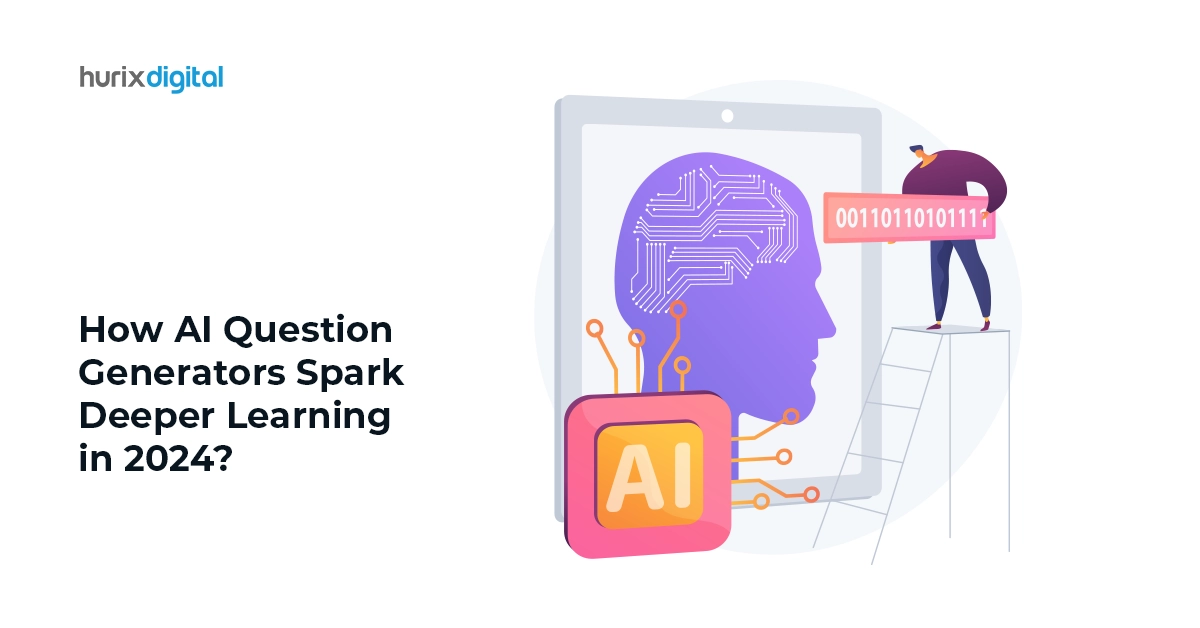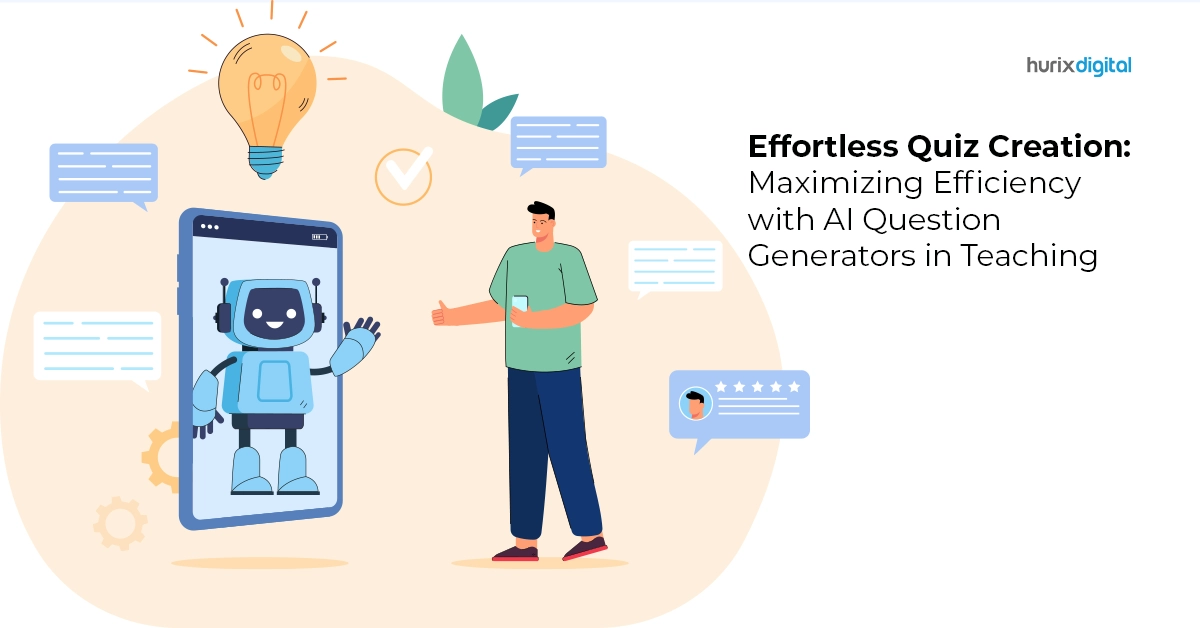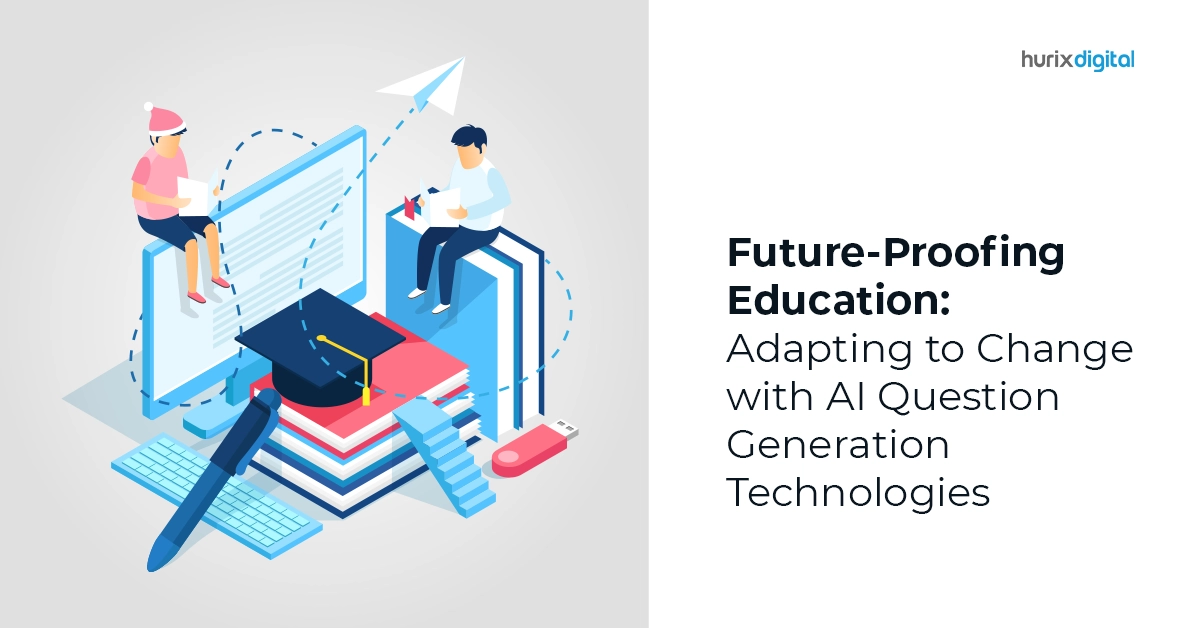
Future-Proofing Education: Adapting to Change with AI Question Generation Technologies
AI has changed the world of education in more ways than one. From offering personalized learning experiences to automating assessments, the list of benefits is endless. One of these key benefits includes its ability to generate questions for assessments, ensuring higher standards and better learning outcomes.
However, adapting to these changes can be a challenge, especially so since they’re revolutionizing the world of education at a rapid pace. If you’re a key stakeholder in the education sector and want to understand how AI question generators are revolutionizing education, this guide is for you.
We explore the impact of AI question generators on the educational landscape and discuss how they contribute to future-proofing education. Read on!
Table of Contents:
- Understanding AI Question Generation Technology
- The Benefits of AI Question Generation Technologies
- Conclusion
Understanding AI Question Generation Technology
Generating question papers manually can be a tedious and time-consuming process. It requires keeping several aspects and can be rather overwhelming when done in large volumes. AI question-generation technologies automate the process of creating high-quality question papers and assessments based on the given curriculum.
These tools typically use a combination of artificial intelligence and Machine Learning to automate the process of creating assessments from scratch. This ensures consistency in the assessment development process and that learning outcomes are consistently met.
These technologies typically require educators or subject matter experts to input their topic-wise weightage and the overall difficulty level, and the technology creates a well-balanced assessment that meets these requirements.
Also Read: Challenges and Opportunities of Generative AI in Assessments
The Benefits of AI Question Generation Technologies
Below are the five key benefits of using AI question-generation tools:
1. Time Efficiency: Streamlining Assessment Preparation
The very first benefit of an AI question generator is that it helps save educators a great deal of time, preventing the need to create questions based on multiple variables manually.
With the use of Natural Language Processing (NLP), they can generate questions from text and existing concepts, preventing teachers from having to pick out questions manually.
This frees them up for more strategic operations such as curriculum planning, personalized teaching, and a whole lot more.
2. Consistency and Quality: Elevating Assessment Standards
Consistency is key to ensuring the quality of assessments and the learning outcomes achieved through them. However, when done manually, the risk of human error or inconsistency increases.
AI question generation tools get rid of any such inconsistencies by always generating assessments based on the right balance of topic weightage, difficulty levels, and various other factors.
Another key benefit that comes with this consistency is the elimination of any form of bias. Lack of bias ensures that teachers don’t create assessments based on a misinterpreted understanding of their students’ abilities; AI question-generation tools eliminate bias from the assessment-creation process.
3. Enhanced Question Papers: Tailoring Learning Experiences
When created manually, the chances of question papers being of consistently high quality can take a hit. The likelihood of this decline in quality only increases when question papers are created in large volumes, thereby making it a tedious process on the whole.
On the contrary, AI question-creation technologies ensure that assessments are of high quality by selecting the most relevant questions for exams. This links to the previous benefit mentioned in this guide, which is that of consistency.
4. Security in Examination Processes: Safeguarding Academic Integrity
Question paper leakages have been an occurrence that has plagued educational institutions for years, primarily so when the whole process was manual. However, AI technology has made the process of generating question papers a lot more secure, thereby preventing any instances of leakages.
5. Key Insights Through AI: Data-Driven Decision-Making
Using question paper generation technologies allows you to curate assessments while also gathering key data from responses. This data can then offer crucial insights to teachers about student performance, along with each individual’s strengths, weaknesses, and potential areas of improvement.
This data can also help inform future lesson planning and strategies to aid teaching, thereby improving students’ learning outcomes.
How to Generate Online Exams Using AI Question Generators
There are a few key steps to follow when using an AI question-generation tool. These include –
- Step 1 – The first step is to define the subject and the topic to give the tool a clear idea of what you want the question paper to be based on.
- Step 2 – Second, set up the difficulty level of the questions you want the tool to generate for the assessment. It will help align the questions with the goals of the exam.
- Step 3 – Identify who the target examinees are for the exam. This will help give the tool a clear picture of how to tailor the questions for the said audience and the goals of the exam.
- Step 4 – The fourth step is to determine the goal of the examination itself. This could be to evaluate the student’s understanding of a topic, for example.
- Step 5 – Specify the format of the questions you’d like the tool to generate. These could include Multiple Choice Questions, True or False statements, or coding questions, for example.
- Step 6 – Run the tool and allow it to generate a question paper based on all the parameters you have entered.
Also Read: Dictera AI Assessment Generators vs. Traditional Testing Methods: Which One is Right for You?
Conclusion
AI question-creation technologies have revolutionized the world of education over the past couple of years, especially so with the increased use of AI since the COVID-19 pandemic. The Teacher Confidence Report for 2023 states that 4 in every 10 teachers expect to use AI in classrooms by the end of the 2023-2024 academic year.
Add to this the increase in the use of AI in education at a global scale, and you can see why technologies like these can truly help elevate the quality of education and assessments at the K-12 level.
As an educational institute, if you’re considering incorporating the use of AI to curate better content and higher-quality assessments, partner with Hurix Digital. Our commitment to innovation ensures you stay at the forefront of educational advancements.
The question generator tool on our newest platform, Dictera, automates the generation of intelligent assessments, gathers useful data, and enables smooth real-time collaboration to produce better content with minimum effort.
Book a free trial for more details!

Vice President – Digital Content Transformation. He is PMP, CSM, and CPACC certified and has 20+ years of experience in Project Management, Delivery Management, and managing the Offshore Development Centre (ODC).
